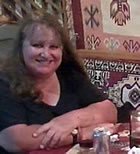Keynote Speakers
Day 1 Keynote - 'The importance of trust (and other intangibles) in the adult literacy teaching profession'
Susan Bates
This presentation will explore the nature of professional relationships between teachers and learners in adult literacy; the skills, behaviours and strategies produced within them; and the degree to which those relationships can enhance learning for both parties.
In adult literacy, effective teaching and learning is a complex, challenging process, undertaken in the context of previous educational failure, social inequality, personal doubt and a powerful stigma. What successful teachers and learners know is that the (inter)personal aspects of the professional relationship between teacher and learner have a powerful capacity to transform the teaching and learning experience.
Susan has wide-ranging experience in the adult literacies field in Australia and the UK over the last thirty years. She has been responsible for innovations in professional development and curriculum development, including Assessor Training for the Special Intervention Program in the 1990s, and the Course in Applied Vocational Study Skills (CAVSS) more recently.
She was accepted into the British Highly Skilled Migrant Programme on the basis of her contributions to the adult literacy field in Australia, and since 2004 has been working in Scotland, in project management and curriculum development. She implemented CAVSS in Scotland, including in the secondary sector, and most recently has co-developed an Adult Literacies Teaching qualification for the Scottish Qualifications Authority.
Susan has always been particularly interested in understanding adult literacy in a societal, and therefore political, context as an essential element in successful literacy teaching. Her experience in the Scottish adult literacies field, where there is a strong commitment to a social practices perspective at all levels, has strengthened that interest.
Day 2 Keynote - 'Engaging Marginalised Learner Identities: The Potential to Improve VET Delivery'
Ruth Wallace, Director, The Northern Institute, Charles Darwin University
 Learning is a social process, informed by social interactions that are informed by place, time, language, culture and context. Learner identities are socially informed and connected to learners’ communities based in school, peer, family, local and global contexts. Learner identity has been shown to have an impact on the ways disenfranchised learners engage with formal education. Ruth will discuss research with marginalised learners in regional areas that identified and typified participant learner identities in order to provide a framework for describing learner identities by adapting educational institutions and experiences to support the development of empowered learner identities. The four broad groupings of learner identity are described as resistant, persistent, transitional and enacted. This presentation describes the different characteristics of learners’ identities as well as the potential of the learner identity framework to evaluate and refine learning approaches. Finally, the presentation discusses each learner profile identified in the study to understand and respond to the decisions of learners around engagement and disengagement and suggests the implications for educational policy.
Learning is a social process, informed by social interactions that are informed by place, time, language, culture and context. Learner identities are socially informed and connected to learners’ communities based in school, peer, family, local and global contexts. Learner identity has been shown to have an impact on the ways disenfranchised learners engage with formal education. Ruth will discuss research with marginalised learners in regional areas that identified and typified participant learner identities in order to provide a framework for describing learner identities by adapting educational institutions and experiences to support the development of empowered learner identities. The four broad groupings of learner identity are described as resistant, persistent, transitional and enacted. This presentation describes the different characteristics of learners’ identities as well as the potential of the learner identity framework to evaluate and refine learning approaches. Finally, the presentation discusses each learner profile identified in the study to understand and respond to the decisions of learners around engagement and disengagement and suggests the implications for educational policy.
Ruth Wallace is the Director of The Northern Institute, Charles Darwin University. Her particular interests are related to undertaking engaged research that improves outcomes for stakeholders in regional and remote Australia.
Ruth has extensive experience in innovative delivery of compulsory, post school and VET programs in regional and remote areas across Northern Australia. She’s a Senior VET Lecturer and researcher, with extensive expertise in VET practice development, learning communities, literacies and flexible learning. She has undertaken research into the links between identity and involvement in post-compulsory schooling and development of effective pathways through flexible learning and recognition of Indigenous knowledge. Ruth has also undertaken research into flexible learning, action learning and developing effective materials and assessment for marginalized students.
Ruth’s work with disenfranchised and reluctant learners is based on the Learner Identity Framework, which she developed while working with indigenous learners in remote communities, but which she believes can be applied to learners who are not indigenous but come from the fringes of society where engagement in education is not a part of their family or community priorities. Ruth examines the experiences of ‘reluctant’ or ‘disenfranchised’ learners when they enter our education and training setting – they often feel as though they have to fight for their space and need assistance to experience a sense of belonging. Ruth offers practical strategies, applying commonly available technologies in ways that allow learners to take more control of their assessment and learning process.
